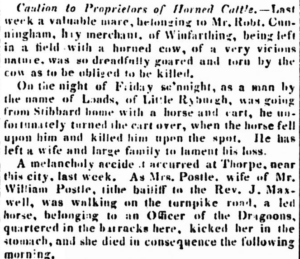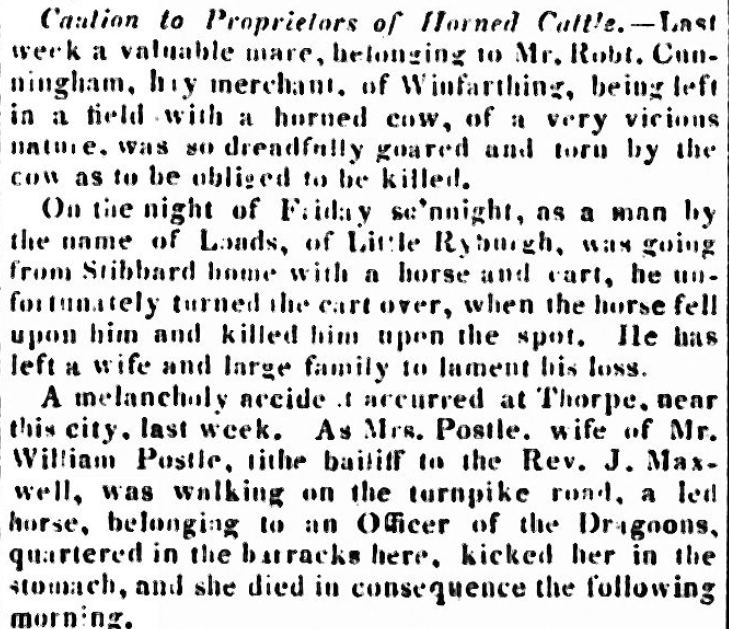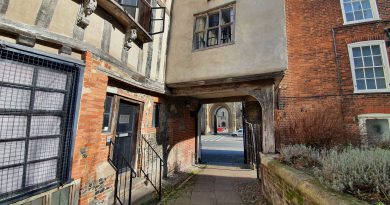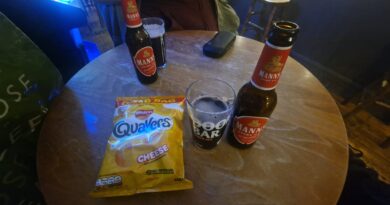200 Years Ago in Norwich : The Dangers of Animals
![]()
Just as a random article from 200 years ago. There’s sometimes a feeling that the past is some sort of halcyon place full of happiness and glee with a rural and traditional way of life.

“Caution to Proprietors of Horned Cattle. – Last week a valuable mare, belonging to Mr. Robt. Cunningham, hay merchant, of Winfarthing, being left in a field with a horned cow, of a very vicious nature, was so dreadfully gored and torn by the cow as to be obliged to be killed.
On the night of Friday se’nnight, as a man by the name of Loads, of Little Ryburgh, was going from Stibbard home with a horse and cart, he unfortunately turned the cart over, when the horse fell upon him and killed him upon the spot. He has left a wife and large family to lament his loss.
A melancholy accident occurred at Thorpe, near this city, last week. As Mrs. Postle, wife of Mr. William Postle, tithe bailiff to the Rev. J. Maxwell, was walking on the turnpike road, a led horse, belonging to an Officer of the Dragoons, quartered in the barracks here, kicked her in the stomach, and she died in consequence the following morning.”
But then you get news articles like this, which are commonplace in newspapers of the time. Norwich, and other parts of Norfolk, at this point were also crime ridden and dangerous, even though a lot of people had little worth stealing. The past isn’t always so magical, especially for the families left to deal with the consequences of disasters such as this.
As a random aside, the history of the word ‘melancholy’ is intriguing (or it is to me):
“Middle English: from Old French melancolie, via late Latin from Greek melankholia, from melas, melan- ‘black’ + kholē ‘bile’, an excess of which was formerly believed to cause depression.”




